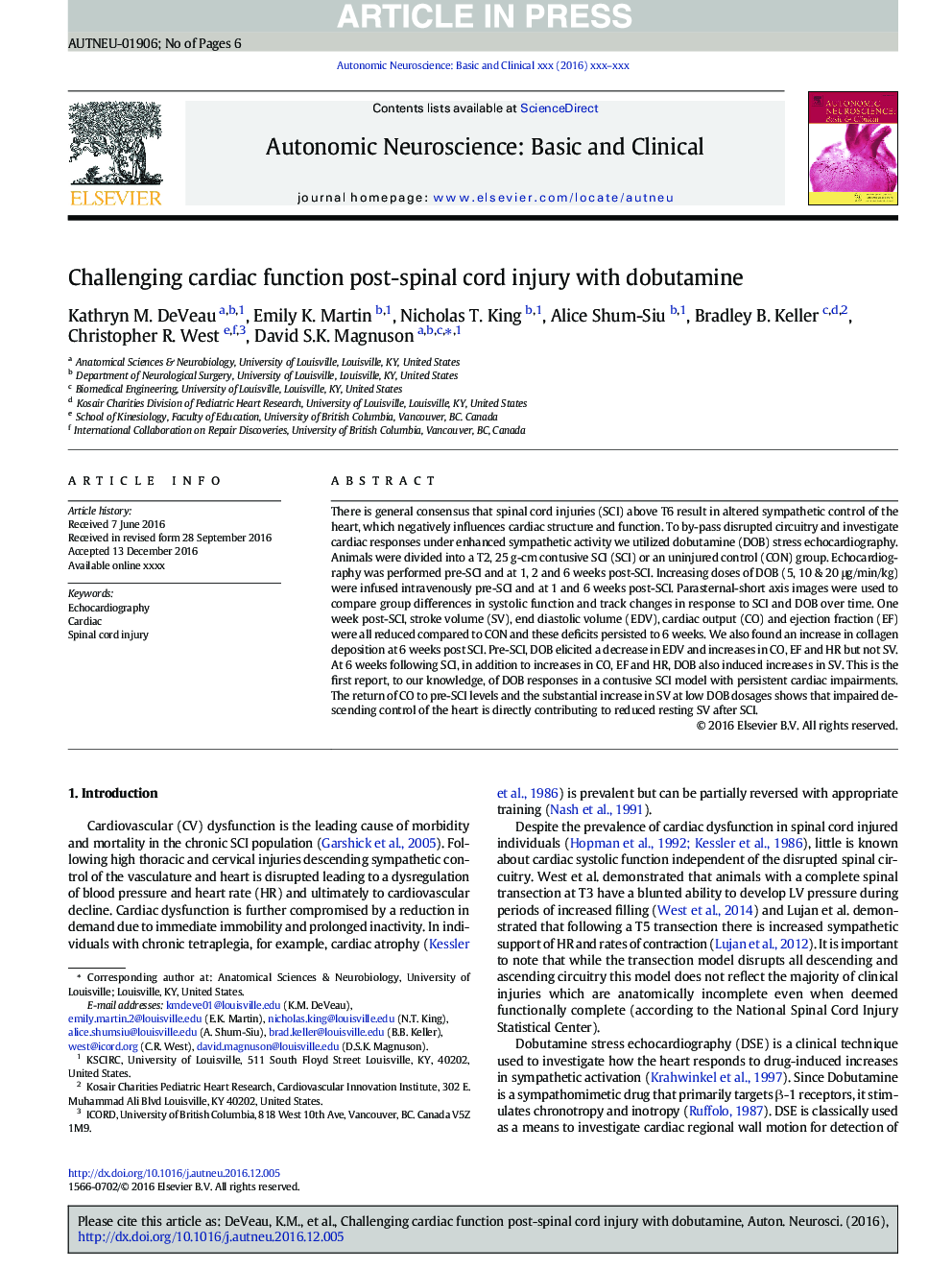| Article ID | Journal | Published Year | Pages | File Type |
|---|---|---|---|---|
| 8681059 | Autonomic Neuroscience | 2018 | 6 Pages |
Abstract
There is general consensus that spinal cord injuries (SCI) above T6 result in altered sympathetic control of the heart, which negatively influences cardiac structure and function. To by-pass disrupted circuitry and investigate cardiac responses under enhanced sympathetic activity we utilized dobutamine (DOB) stress echocardiography. Animals were divided into a T2, 25 g-cm contusive SCI (SCI) or an uninjured control (CON) group. Echocardiography was performed pre-SCI and at 1, 2 and 6 weeks post-SCI. Increasing doses of DOB (5, 10 & 20 μg/min/kg) were infused intravenously pre-SCI and at 1 and 6 weeks post-SCI. Parasternal-short axis images were used to compare group differences in systolic function and track changes in response to SCI and DOB over time. One week post-SCI, stroke volume (SV), end diastolic volume (EDV), cardiac output (CO) and ejection fraction (EF) were all reduced compared to CON and these deficits persisted to 6 weeks. We also found an increase in collagen deposition at 6 weeks post SCI. Pre-SCI, DOB elicited a decrease in EDV and increases in CO, EF and HR but not SV. At 6 weeks following SCI, in addition to increases in CO, EF and HR, DOB also induced increases in SV. This is the first report, to our knowledge, of DOB responses in a contusive SCI model with persistent cardiac impairments. The return of CO to pre-SCI levels and the substantial increase in SV at low DOB dosages shows that impaired descending control of the heart is directly contributing to reduced resting SV after SCI.
Related Topics
Life Sciences
Neuroscience
Cellular and Molecular Neuroscience
Authors
Kathryn M. DeVeau, Emily K. Martin, Nicholas T. King, Alice Shum-Siu, Bradley B. Keller, Christopher R. West, David S.K. Magnuson,
